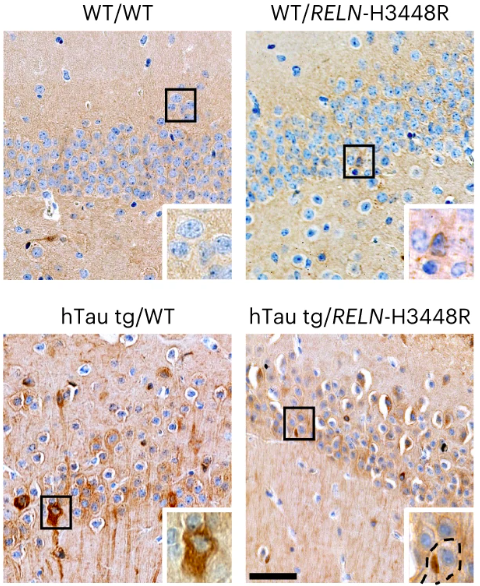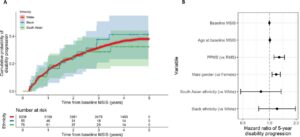
“Resilience to autosomal dominant Alzheimer’s disease in a Reelin-COLBOS heterozygous man.”
Francisco Lopera, et al. – University of Antioquia, Harvard Medical School. Nature Medicine.
As part of a long-running study of a kindred with extensive autosomal-dominant AD, this case report examined a male patient whose AD manifested decades later than typical for this cohort. While imaging revealed high levels of amyloid plaques throughout the cortex, this patient showed notably lower amounts of Tau pathology in the entorhinal cortex (ERC). Genetic sequencing revealed a novel mutation in the gene encoding Reelin, a receptor involved in the ApoE signaling pathway. The authors found this mutation increases its ability to activate Dab1, and in turn reduce Tau phosphorylation, in male mice. These results suggest the Reelin-Dab1 signaling pathway could be a therapeutic target in AD, perhaps to the level of gene therapy providing this variant to the ERC. More research is needed to understand the apparent sex specificity and whether this can be altered.
According to the recent atlas published by the Allen Institute, Reelin expression is limited to a subset of interneurons, including the SST+ neurons they found to die early in AD pathology. If Reelin expression in the ERC follows a similar pattern, this would indicate an outsized role for these neurons. Additionally, a model for AD described in a recent preprint predicts that a Reelin variant showing greater Dab1 activation would provide resilience.
Find a Zotero library with this and other notable open-access articles published in May 2023 here.




